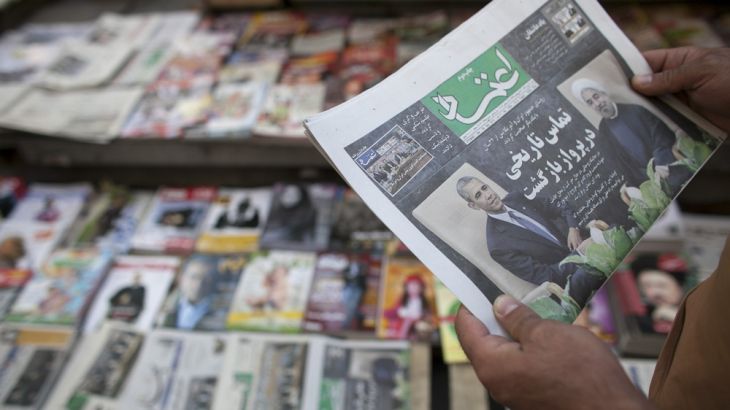
Under scrutiny: Selling the Iran-US nuclear deal
Managing the media message after the historic nuclear deal; plus, the problems and perils of reporting on Boko Haram.
The historic nuclear agreement between the US and Iran was sealed a month ago – but since then, the media in both countries have become battlegrounds for fierce political debate.
Both governments are trying sell the deal – a challenge to sway public opinion in the face of loud opposition from conservative hardliners from both countries. The US and Iran are home to skeptics, conservatives who argue the risks in the agreement outweigh the benefits.
And there is also a PR push from an Israeli leader who has had plenty of airtime to state what his country has to lose from the detente.
Talking us through the story is Reza Marashi, the research director at the National Iranian American Council; Barbara Slavin, a senior fellow at the Atlantic Council and Washington Correspondent for Al Monitor; Iran analyst Negar Mortazavi; and Tehran University’s Mohammad Marandi.
Other stories that have been on our radar this week: Washington is investing half a million dollars in training Russian-speaking journalists in the Baltics to counter what they call Russian propaganda; WikiLeaks has announced a crowd-fund appeal to the tune of $100,000 – reward money to entice a source into leaking details on the Transatlantic Trade and Investment Partnership (TTIP); and the English Premier League strikes a deal with British newspapers and international news agencies over access amidst controversy over some journalists being banned from individual clubs who might not like their coverage.
Nigeria and the challenges of covering Boko Haram
It is a conflict that has claimed 17,000 lives, but one that has been notoriously hard to report. Since Boko Haram launched its insurgency in northern Nigeria in 2009, journalists trying to cover the story have had a challenge on their hands: how to access a story centred around the north-eastern region of Nigeria where the security situation is so fraught that it is often just too dangerous to file stories directly from the ground.
And as most of the region’s telecom infrastructure has been destroyed, reporters have a limited choice as to where to get their information: Boko Haram’s propaganda machine or official press releases from the government. That means there are gaps in the story – and that means the public is not getting the information they deserve.
The Listening Post‘s Nic Muirhead travelled to Nigeria to talk to news editors and reporters about the challenges they face covering the story of Boko Haram.
Spend a few days eavesdropping on editors, photographers or reporters and you have a comedy script in the making.
Overheard in the Newsroom did just that and created an online platform where journalists can post the exchanges they overhear at work. Set up six years ago by an American graphic designer named Kevin Cobb, the website has generated a huge following on Twitter and Facebook. At The Listening Post, we took a few of those online exchanges and threw them on the screen.